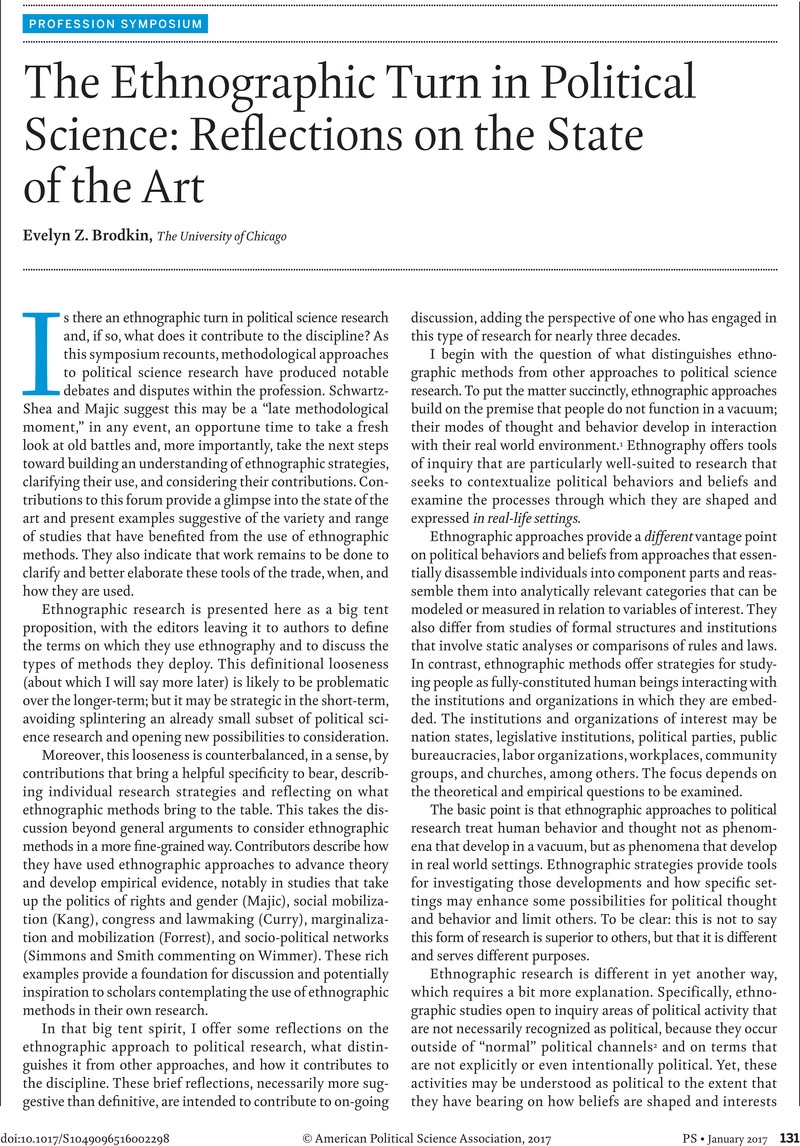Crossref Citations
This article has been cited by the following publications. This list is generated based on data provided by Crossref.
Papadopoulos, Yannis
2018.
How does knowledge circulate in a regulatory network? Observing a European Platform of Regulatory Authorities meeting.
Regulation & Governance,
Vol. 12,
Issue. 4,
p.
431.
Cheesman, Nick
2018.
Rule-of-Law Ethnography.
Annual Review of Law and Social Science,
Vol. 14,
Issue. 1,
p.
167.
Tomkinson, Sule
and
Miaz, Jonathan
2019.
Au coeur des politiques d’asile : perspectives ethnographiques.
Politique et Sociétés,
Vol. 38,
Issue. 1,
p.
3.
Brücker, Pauline
2019.
Le guichet du HCR, entre standardisation bureaucratique et ethos humanitaire.
Politique et Sociétés,
Vol. 38,
Issue. 1,
p.
129.
Douniès, Thomas
2020.
La double vérité de la mise en œuvre.
Gouvernement et action publique,
Vol. VOL. 9,
Issue. 2,
p.
41.
Jørgensen, Bastian
and
Schou, Jannick
2020.
Helping or intervening? Modes of ordering in public sector digitalization.
Journal of Organizational Ethnography,
Vol. 9,
Issue. 3,
p.
265.
Mascia, Carla
2021.
How bureaucracies shape access to rights: the implementation of family reunification in Belgium.
Journal of Ethnic and Migration Studies,
Vol. 47,
Issue. 9,
p.
2127.
Auyero, Javier
2021.
Afterword. Going Granular.
Qualitative Sociology,
Vol. 44,
Issue. 3,
p.
473.
Lang, Bertram
2021.
Framing and localizing anti-corruption norms in transnational civil society organizations: Transparency International in Portugal.
Journal of Civil Society,
Vol. 17,
Issue. 2,
p.
155.
Barrault‐Stella, Lorenzo
and
Douniès, Thomas
2021.
Introduction to the Special Issue: Citizenship as a Tool of Government in Europe.
Politics & Policy,
Vol. 49,
Issue. 4,
p.
824.
Sanga, Naganika
Gonzalez Benson, Odessa
and
Josyula, Lakshmi
2021.
Top-down processes derail bottom-up objectives: a study in community engagement and ‘Slum-Free City Planning’.
Community Development Journal,
Berriane, Yasmine
Derks, Annuska
Kreil, Aymon
and
Lüddeckens, Dorothea
2021.
Methodological Approaches to Societies in Transformation.
p.
1.
Berriane, Yasmine
and
Kreil, Aymon
2022.
La vie sociale des normes.
Mondes arabes,
Vol. N° 1,
Issue. 1,
p.
47.
Volk, Sabine
2022.
Explaining PEGIDA’s ‘strange survival’: an ethnographic approach to far-right protest rituals.
Political Research Exchange,
Vol. 4,
Issue. 1,
Volk, Sabine
2022.
Conceptualising Europe from the far right: The mobilisation of intellectual heritage in Germany.
Journal of European Studies,
Vol. 52,
Issue. 3-4,
p.
238.
Volk, Sabine
2022.
FAR-RIGHT DIGITAL ACTIVISM DURING AND BEYOND THE PANDEMIC.
Ethnologia Polona,
Vol. 43,
Issue. ,
Blidook, Kelly
and
Koop, Royce
2022.
“We can help and it doesn’t cost you a cracker”: the multidimensionality of service representation in Australia and New Zealand.
Political Science,
Vol. 74,
Issue. 2-3,
p.
75.
Caria, Telmo H.
and
Sacramento, Octávio
2022.
Introdução: Subordinações burocráticas e autonomias profissionais: etnografias de políticas sociais em prática.
Etnografica,
p.
455.
Volk, Sabine
2023.
Resisting ‘leftist dictatorship’? Memory politics and collective action framing in populist far-right street protest.
European Politics and Society,
Vol. 24,
Issue. 5,
p.
535.
Wheeler, Deborah L
2023.
Quick immersions and the study of Middle East politics.
International Area Studies Review,
Vol. 26,
Issue. 2,
p.
125.



